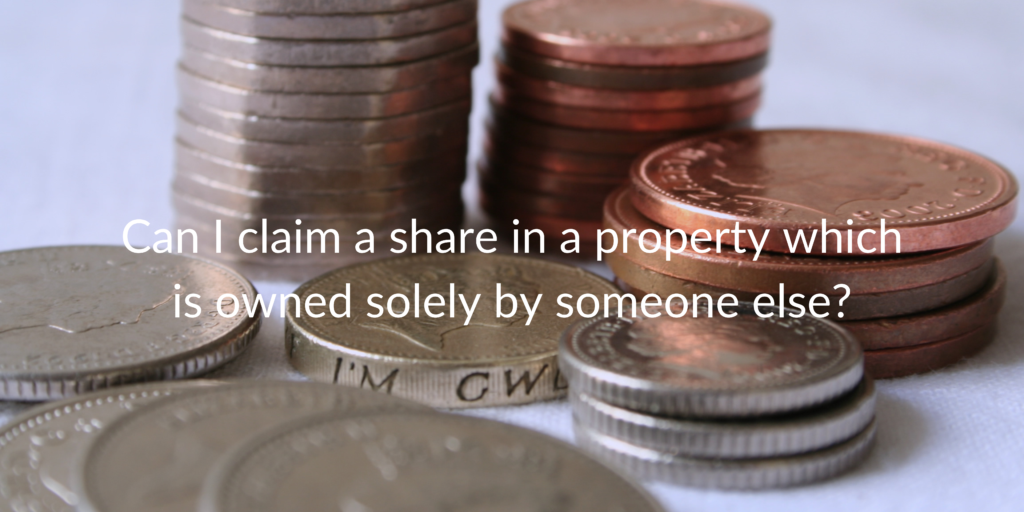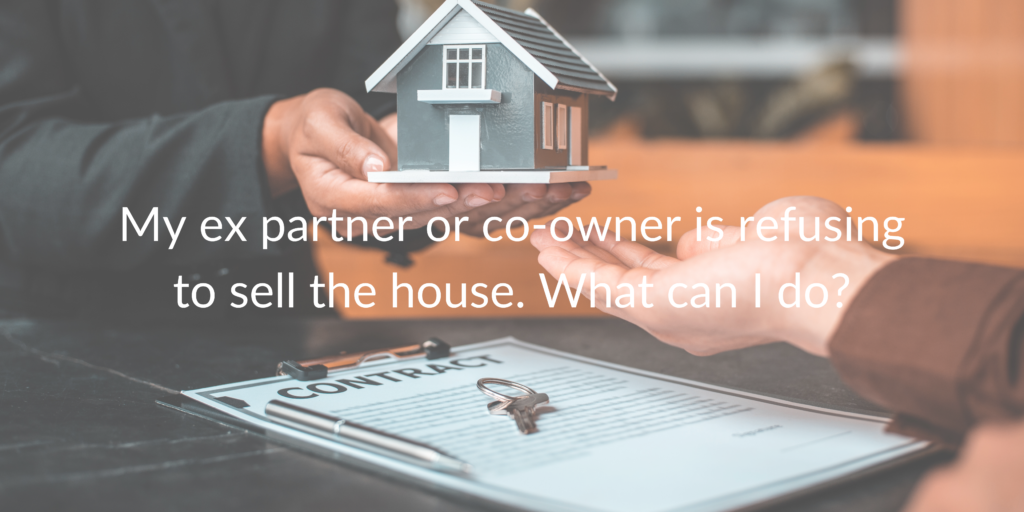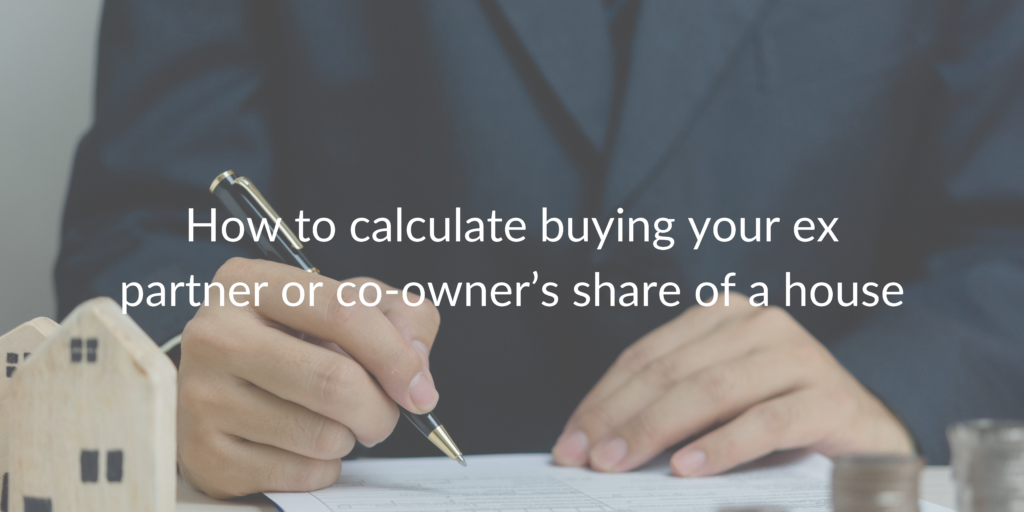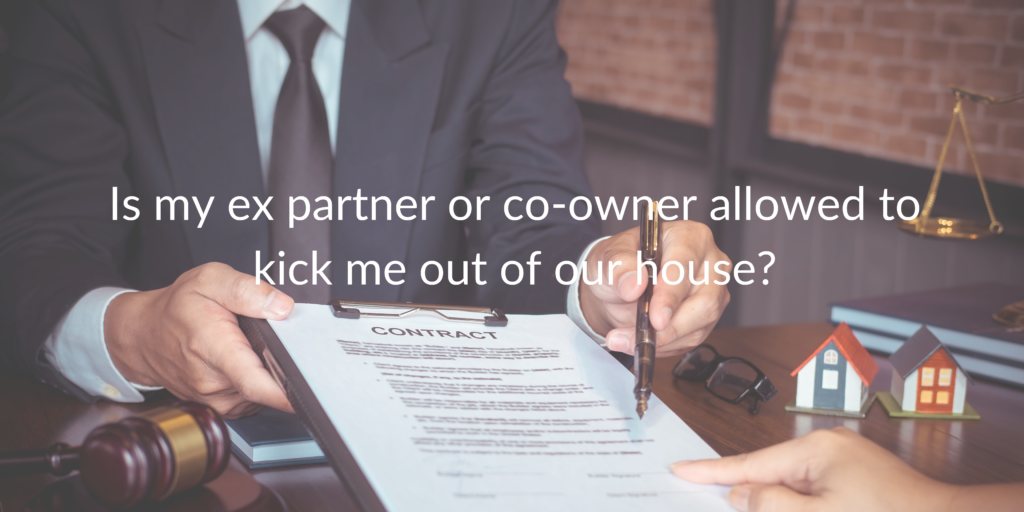Property ownership disputes – a complete guide to TOLATA claims

Our property disputes solicitors provide specialist advice and expertise on claims relating to property ownership after a relationship has broken down. The Trust of Land and Appointment of Trustee Act 1996 (TOLATA) allows the court to resolve property ownership disputes that may arise between couples, friends or family members.
In this guide we answer some commonly-asked questions on property ownership disputes and TOLATA claims, as well as explain how we can help if you are faced with a dispute following a relationship breakdown.
Our lawyers have many years of experience in resolving such disputes between couples, friends or family members. By receiving the right guidance, you will increase your likelihood of resolving your dispute in a timely and cost-effective way.
Frequently-asked questions about property ownership disputes and TOLATA claims:
Click on the links below to jump to the different questions.
-
-
-
- What can I do if I buy a house with my partner and then we break up?
- How do I get my money back if I break up with a partner after buying a house?
- What share of the house am I entitled to in a property ownership dispute?
- Can I claim a share in a property which is owned solely by someone else?
- Can my ex or co-owner force me to sell the house?
- My ex partner or co-owner is refusing to sell the house. What can I do?
- What is an order for sale?
- How do I get my equity back in a property ownership dispute?
- How can I buy someone’s share of a house?
- How to calculate buying your ex partner or co-owner’s share of a house
- Is my ex partner or co-owner allowed to kick me out of our house?
-
-
What can I do if I buy a house with my partner and then we break up?

When a relationship ends there can be many complicated financial matters to deal with, none more so than the living arrangements. If an unmarried couple moved in together or bought a house together and jointly contributed towards improvements or the mortgage, then it is possible that a beneficial interest in that property may have been created.
If that relationship then ends, the parties will need to decide how to deal with the property. Their options might include one party buying the other party’s share, the property being sold, amongst other possible options.
Given the complexities around the concept of legal and beneficial interests relating to property, we recommend that if you are cohabiting and you experience a relationship breakdown and you are unsure of your options, that you seek legal advice.
In addition, if you are in a relationship and are looking to either buy a property together or cohabit with someone else, we’re able to offer sensible, pragmatic advice to ensure that arrangements are in place to minimise the risk of property ownership disputes.
How do I get my money back if I break up with my partner after buying a house?

If you jointly bought a property with your partner, you may be entitled for that property to be sold at your request and to receive a share of the proceeds.
In the event that the other party refuses to sell, you may be able to apply to the court for an order for sale. Whether such claim would be successful will greatly depend upon the background of the matter, as well as any earlier agreement between the parties.
If you didn’t buy the property jointly, but you contributed towards the mortgage or any improvement works, you may hold an interest in the property and you may be entitled to a share of the proceeds of sale, and to obtain an order for the sale of the property.
What share of the house am I entitled to in a property ownership dispute?

What financial share of a property a party is entitled to when a relationship breaks down can depend on various factors. These may include, but are not limited to:
-
- Any contribution towards the purchase price;
- Any contribution towards the ongoing mortgage, or repayment of mortgage capital;
- Any payment made to acquire a share of the property;
- The conduct of the parties generally;
- Any agreement in relation to the ownership of the property; and
- And contribution towards improvement works, whether financial or based on DIY;
Ultimately, those factors will need to be considered holistically to be in a position to take a view on whether an interest in the property exists and if so, at what level.
-
-
Can I claim a share in a property which is owned solely by someone else?

- Where it has been agreed that you or another party would have a share in the ownership of a property, whether expressly, impliedly or by common intention – and you or they have been disadvantaged due to relying on that agreement or on representations made by the other party – you may have grounds to bring a claim. This could mean you may be entitled to a share of the beneficial interest in that property, either through a trust or because of the rules of proprietary estoppel. The extent of that interest will depend on a number of factors including:
-
-
-
- Any contribution towards the purchase price;
- Any contribution towards the ongoing mortgage, or repayment of mortgage capital;
- Any payment made to acquire a share of the property;
- The conduct of the parties generally;
- Any agreement in relation to the ownership of the property; and
- And contribution towards improvement works, whether financial or based on DIY.
Can my ex or co-owner force me to sell the house?

If a party holds an interest in a property, they are typically entitled to an seek an order that the property be sold, such that they can realise that interest.
That being said, whether an order for sale is granted by the court will greatly depend upon why the property was bought, what the parties agreed, what interest a party holds in the property, and whether any other parties live at the property.
My ex partner or co-owner is refusing to sell the house. What can I do?

If you hold an interest in a property and the other party refuses to sell, we can help to assist parties in agreeing to a sale, or alternatively, to agreeing a settlement.
If this cannot be achieved, you may be entitled to seek an order for the sale of the property. In either case, our team of experts are able to advise on all the options available to you.
What is an order for sale?

An order for sale is a court order that compels parties to arrange for the sale of a property.
Usually, we are able to achieve a a resolution for our clients that does not lead to an order for sale being required. However, if the parties are unable to agree the next steps, then it may be necessary to seek an order for sale to provide that certainty. The process would deal with all the necessary steps required to arrange for the sale of the property, to include how it is to be marketed, at what price it is to be sold, and what share of the proceeds the parties are entitled to.
How do I get my equity back in a property ownership dispute?

If you contributed towards the purchase price, improvement or ongoing mortgage payments in relation to a property and you want to recover your contributions, you may consider one of the following options:
-
- A settlement payment;
- Agreeing the sale of the property; or
- An order for the sale of the property and the division of the proceeds of sale.
In the majority of property ownership disputes, we are able to help parties in reaching an amicable settlement so that court involvement (i.e. an application for an order for sale) is not needed.
However, if the parties are unable to agree a resolution, we can help in seeking a order for sale, to deal with both the necessary steps in relation to the sale of the property and the division of the proceeds of sale.
How to buy someone out of a house and avoid property ownership disputes

If the other party has an interest in your property, or if you bought a property together, you may wish to buy their share of the property following a relationship breakdown.
Typically, we are able to help parties in negotiating a resolution to settle matters, accounting for each party’s contribution towards the property over the years.
However, if the parties are unable to agree a resolution, we can help you in seeking an order for sale, which declares each share the parties are entitled to, and which requires that the property is sold. The necessary steps relating to the sale of the property may also be dealt with. At that stage, you may look to buy the property outright from the other party.
How to calculate buying your ex partner or co-owner’s share of a house

When parties have jointly contributed towards the property it can be difficult to calculate what interest they may have in the property, if any.
The starting point will be for us to undertake an exercise in “equitable accounting”. This is a process where you provide us with the amount of the contributions each party has made to the purchase, mortgage payments or improvements to the property. We can then advise you as to the weight and impact of any such payments, and to the likely shares each party is entitled to from a property.
Typically, we are then able to help the parties in agreeing a resolution to the dispute. However, if the parties cannot agree a resolution, we can then assist you in seeking an order for sale from the court which would declare the parties’ respective shares.
Is my ex partner or co-owner allowed to kick me out of our house?

If you jointly own a property and you have not been accused of any poor conduct, you are typically not allowed to be excluded from the property.
In addition, if you are excluded from a property that you jointly own, whether expressly or by way of the poor conduct of the other party involved, or following a relationship breakdown, you may be entitled to claim occupational rent (which is a payment made to a party by the party which has excluded them from the property) .
If you have been excluded from your property we can recommend the best way forward, whether that is in regaining entry or by securing a sale of the property.
We are here to help you navigate your way through the claims process, so please get in touch for advice.
How can Willans help to resolve property ownership disputes?
Our experienced property disputes solicitors can help you to resolve your issue in the most efficient and cost-effective way. Our lawyers have extensive experience in dealing with TOLATA claims and property ownership disputes in particular, and offer an initial telephone or video call of up to 30 minutes to hear about your matter, offer some guidance and help you decide the best way forward.
The first step is to arrange an initial no-obligation consultation with one of our experienced property disputes experts.
Disclaimer: Please note that this page is for guidance only and does not replace legal advice. Speak to us if you seek advice, we’d be delighted to help you resolve your dispute
-
Contact
Nick Southwell BA (Hons)
Partner
 View profile
View profile

Megan Bullingham BA (Hons), FCILEx
Associate, chartered legal executive
 View profile
View profile

Related services
Share this article
Land, boundary and neighbour disputes | A complete guide
Our property disputes solicitors provide specialist advice and expertise to help deal with all kinds of neighbour disputes over land. In this guide we look at the types of disputes…
Nick Southwell BA (Hons)
Partner

How will the Renters' Rights Act impact landlords & tenants?
How will the Renters’ Rights Act impact landlords and tenants? Our property disputes specialist has the answer, having discussed the transformative updates on BBC Radio Gloucestershire. The first phase of…
Katie Charlton LLB (Hons), MSc
Trainee solicitor

The Renters’ Rights Act 2025 receives Royal Assent: What landlords need to know
The Renters’ Rights Bill officially received Royal Assent on 27 October 2025, becoming the Renters’ Rights Act 2025. The Renters’ Rights Act is the biggest reform of England’s private rental…
Katie Charlton LLB (Hons), MSc
Trainee solicitor










